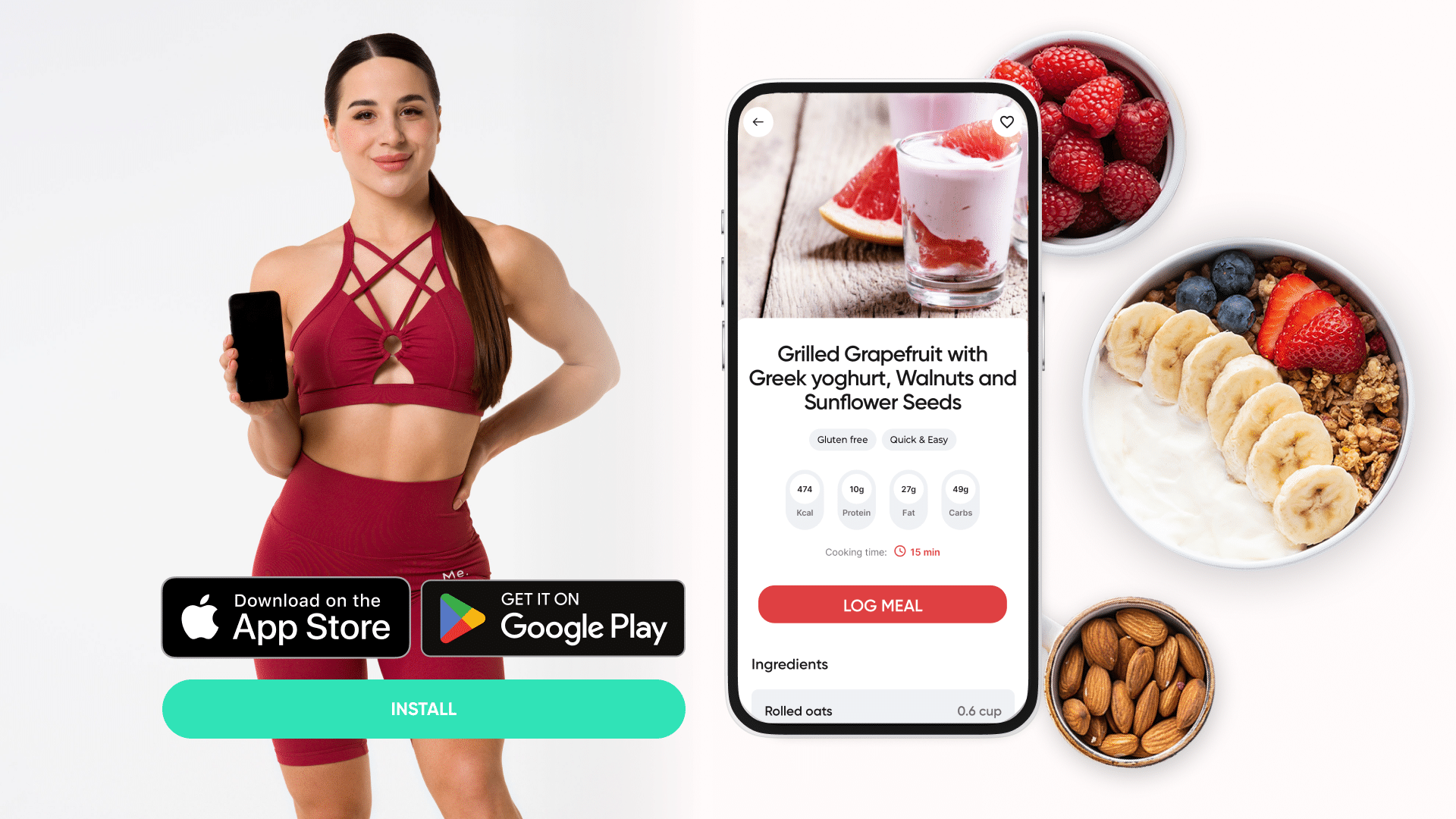Intermittent Fasting Vs Calorie Restriction
We are living at a time where almost everyone is consciously watching their weight. People all over the world are looking for different approaches to shed pounds quickly using both traditional and modern methods. This has then brought up comparisons between the different approaches in an attempt to find the better one. Intermittent fasting vs calorie restriction is one of the great debates when it comes to weight loss. It is time we try and settle this debate once and for all.
Both approaches have experts supporting them. There are reasons as to why each is better than the other. For us to get an almost definitive answer, we need to check things like the benefits of intermittent fasting vs calorie restriction, the effects of intermittent fasting vs calorie restriction weight loss and so on.
What Is Intermittent Fasting?
Intermittent fasting involves alternating periods of fasting, ranging from a few hours to more than a day, with periods of unrestricted eating. For example, a fast lasting 16 to 20 hours leaving 4 to 8 hours to consume one to two meals and possibly snacks. There are different ways to practice this kind of fast, depending on what type of intermittent fast you choose or which one works for you (10).
Different Types of Intermittent Fasting
There are different types of intermittent fasting. These are:
1. Time-restricted feeding
In this type of intermittent fasting, the individual chooses a limited number of hours in which they can eat. It could be between six to eight hours a day. They can only eat during these hours and are not supposed to eat anything during the rest of the hours (2).
2. Alternate-day fasting
It is similar to time-restricted feeding with the only difference being here you deal with days instead. It comprises days in which people call ‘feast’ days and ‘fast’ days. Here an individual chooses a certain number of days in which they can go without eating or eat the minimum required calories by the body. These are the fast days. The rest of the days, the individual can eat all he or she wants without restriction. These are the feast days. The days of fasting and feasting in this type of intermittent fasting alternate hence the name alternate-day feeding (2).
Read More: How Long Is It Safe To Fast: Are Long Or Short-Term Fasts More Effective?
3. 5:2 eating patten
Unlike alternate day fasting where unrestricted feeding and fasting occurs on alternate days, here, the feeding and fasting days are continuous (12). What do I mean by this? There is unrestricted eating for five straight days, followed by two days of restricted calorie intake (11).
4. Periodic fasting
In this approach, one person chooses a period of consecutive days to restrict the food intake, followed by a period of unrestricted feeding. An example would be you could choose, let’s say six days in a row of restricted feeding during the month, and the rest of the days could be unrestricted. You could even have two periods of restricted feeding in a month. The best thing about the diet is that it all depends on the individual’s needs (2).
Whether you’re a workout beast or just a beginner making your first foray into the world of fitness and dieting – BetterMe has a lot to offer to both newbies and experts! Install the app and experience the versatility first-hand!
5. Eat-stop-eat
This is a type of intermittent fasting where you go a period of 24 hours without eating. This can be done once or twice a week (7).
People Who Can Not Practice Intermittent Fasting
It should be noted just like any other diet; intermittent fasting isn’t for everyone. It is not advised to follow intermittent fasting if (3):
- You are pregnant. This is because pregnant women need a lot of calories to support pregnancy.
- You have a history of disordered eating.
- You don’t sleep well or suffer from cases of insomnia.
- You are new to dieting and exercise.
- You are dealing with brittle diabetes.
Benefits Of Intermittent Fasting
The most common benefit of intermittent fasting is weight loss (8). This is due to the long periods of restricted eating that one undergoes since you usually start burning fat after 12 hours of fasting.
Calorie Restriction
Unlike intermittent fasting, where you go for hours, days or even periods without food, calorie restriction is quite different. Calorie restriction is all about consistency and involves a major reduction on the amount of calories you consume every day. Let’s say if you used to consume 3000 calories a day, you could now be consuming 2500 or even 2000 calories a day. Calorie restriction basically means reducing average daily calorie intake below what is typical or usual, without reaching a state of malnutrition or depriving yourself of the essential nutrients your body needs.
Benefits Of Calorie Restriction
Calorie restriction offers several benefits”
Weight loss. If your body needs 2500 calories every day, taking 2000 calories every day, will lead to you losing weight since you are taking less than you body needs hence forcing your body to use the stored energy in the form of fats.
Prolonged life expectancy. Studies on individuals who practice calorie restriction found that these individuals have low levels of risk factors to cardiovascular diseases and diabetes (1).
How To Follow A Calorie-restricted Diet
These are the things to do in order to be successful in achieving your weight goals using calorie restriction.
- You need to start looking at food as fuel. This means eating only food that you need to function properly, not eating until you are too full (6).
- You should get enough sleep. Lack of sleep could make you break your diet as it could lead to things like late-night snacking, which should not be encouraged (6).
- Front-load calories and go to bed a little hungry. Your first meal of the day should be larger and full of proteins. This helps avoid cravings later in the day hence helping you stick to your diet (6).
- You should plan for challenges. There is nothing related to weight loss that is easy. That is something you should know while you get yourself into this approach (6).
- You should eat foods that are highly nutritious. This goes without saying, eat foods that will provide your body with all the necessary nutrients. Incorporate vegetables, fruits, plant proteins, healthy nuts etc. into your diet (6).
Intermittent Fasting Vs Calorie Restriction Weight Loss
Most of the people have always gone for calorie restriction when it comes to weight loss. Many believe that calorie restriction is effective as in practice all you need to do is make sure you consume fewer calories than you would use daily. Every person has a certain amount of calories they need every day. In calorie restriction as long as you consume almost 500 calories less your body is known to use, you should experience weight loss (6).
Intermittent fasting works just like calorie restriction with it focusing more on weekly calorie averages than daily calorie averages. As discussed above, intermittent fasting is choosing periods of no eating or eating the least minimum the body needs for normal functioning during fast hours or fast days. During feast days or hours, on the other hand, one can eat as much as they possibly can or want to. Intermittent fasting also results in weight loss. The question that then comes to mind is, between intermittent fasting and calorie restriction, which approach results is better when it comes to weight loss, which is easier to follow and so on (5).
Dropping pounds by the dozens without putting yourself through the wringer is everyone’s weight loss pipe dream. But what if we told you that the BetterMe app can make that happen? Keep yourself in prime shape with our fat-blasting workouts, delicious budget-sparing recipes, and body-transforming challenges with our app!
An experiment by the University of Illinois
It is hard to know what kind of approach works when it comes to weight loss without any experiment on the two approaches in comparison to each other. Well, good news as an experiment was done by the University of Illinois to clear this argument once and for all. In the experiment, they compared calorie restriction to alternate-day fasting, which is a type of intermittent fasting (4). In alternate fasting, the individual has a fast day in which they consume only 25% of their usual intake and alternate it with feast days in which individuals consume as much food as they want.
The duration of the experiment was 12 months. It was at the University of Illinois in Chicago. The participants were recruited from the Chicago area by means of elaborate advertising through flyers and were screened through the use of questionnaires, assessment of their body mass index, and a pregnancy test was also conducted. The individuals were aged from eighteen years to sixty-five years. Their body mass indexes ranged from 25.0 to 39.9. Both genders were included in the study.
About the participants of the study
The participants of the study were divided into three groups. The first group belonged to people who would practice alternate-day fasting. The second group belonged to people who would practice calorie restriction dieting. The last group had no limitations as it was a control group. The experiment took place in two phases. The first phase, which was the first six months was for weight loss and the second phase, which was from month seven to twelve was for weight maintenance. This is because they did not only want to measure which approach is effective when it comes to weight loss; they also wanted to know which one is effective in maintaining the achieved weight loss. The participants were also told not to change their physical activity as this would affect the results.
Intermittent Fasting Vs Calorie Restriction During The Weight Loss Phase
During the first three months, the individuals from the alternate day fasting (intermittent fasting) group and the calorie restriction group were provided with all meals. They also received dietary counselling. The individuals were to reduce their intake by 25% during this period of weight loss. On fast days, individuals were to take only 25% intake as lunch and during 125% intake divided into three meals during feast days. The calorie restriction was instructed to consume 75% energy intake divided into three meals. The meals consisted of sixty percent carbohydrates, thirty percent fats and ten percent proteins. (5)
During the weight maintenance stage, individuals from the alternate fasting group were to consume 50% of their daily energy requirements during fast days and 150% divided into three meals during feast days. Individuals from the calorie restriction group were to consume 100% energy intake during this period divided into three meals. The control group were instructed not to change their eating or physical activity habits during this whole period.
Read More: Meal Plans To Lose Weight: Simple Diet Plans, Menus, and Hacks to Lose Pounds Faster
Intermittent Fasting Vs Calorie Restriction Results After Twelve Months
From the results, there are some important aspects we must look at. These aspects include the dropout rate and the change in weight. The dropout rate could indicate which approach is easier to stick to, and the weight change could demonstrate which approach is more effective in weight loss (5).
Out of the 100 participants, only 69 were able to complete the study. The dropout rate was highest from the alternate fasting group. Thirteen out of thirty-four dropped out. The calorie restriction group had ten dropouts out of thirty-five participants. The control group experienced a dropout of eight individuals out of thirty-one individuals. Individuals who dropped out from the alternate fasting said it was due to difficulties following the diet.
When it comes to weight loss, there was not a big difference between the two groups.The alternate fasting group experienced a total weight loss of 6%, while the intermittent fasting experienced a 5.3% weight loss (13, 5).
This then goes to suggest that there is no approach that is better. It all depends on the individual. Are you able to handle intermittent fasting or daily calorie restriction? What advice has your dietician given you? If you have problems selecting the best approach for yourself, it is advisable to consult an expert as they can help you in choosing the best one for you.
The Bottom Line
Intermittent fasting vs calorie restriction will continue to be a debate for some time to come. Although the intermittent fasting has been getting so much hype of late when it comes to weight loss, it is not superior compared to the calorie restriction diet. We even saw more people drop out of this approach which could mean, this approach is hard to maintain after a long period. The approach you choose should depend on which you think might work best for you. Whichever you choose, if you strictly stick to it, you should experience weight loss.
It should also be noted that weight loss is not immediate; dieting is not a magic trick that happens instantly. In case you don’t get the expected results after a long period of time, you should consult a professional.
FAQs
Which is better intermittent fasting or calorie restriction?
As shown by the study illustrated in the text above, neither intermittent fasting nor calorie restriction is better than the other. They both can lead to weight loss, and both have their individual benefits. What really matters is which one works for you in achieving your weight goals, as well as which one your dietician recommends for you (9).
DISCLAIMER:
This article is intended for general informational purposes only and does not serve to address individual circumstances. It is not a substitute for professional advice or help and should not be relied on for making any kind of decision-making. Any action taken as a direct or indirect result of the information in this article is entirely at your own risk and is your sole responsibility.
BetterMe, its content staff, and its medical advisors accept no responsibility for inaccuracies, errors, misstatements, inconsistencies, or omissions and specifically disclaim any liability, loss or risk, personal, professional or otherwise, which may be incurred as a consequence, directly or indirectly, of the use and/or application of any content.
You should always seek the advice of your physician or other qualified health provider with any questions you may have regarding a medical condition or your specific situation. Never disregard professional medical advice or delay seeking it because of BetterMe content. If you suspect or think you may have a medical emergency, call your doctor.
SOURCES:
- 2 years of calorie restriction and cardiometabolic risk (CALERIE): exploratory outcomes of a multicentre, phase 2, randomised controlled trial (2019, thelancet.com)
- Calorie Restriction and Fasting Diets: What Do We Know? (2018, nia.nih.gov)
- Calorie restriction and intermittent fasting: (n.d., precisionnutrition.com)
- Daily Calorie Restriction vs Alternate Day Fasting for Weight Loss (2017, trends.hms.harvard.ed)
- Effect of Alternate-Day Fasting on Weight Loss, Weight Maintenance, and Cardioprotection Among Metabolically Healthy Obese Adults (2017, jamanetwork.com)
- How calorie restriction may be a key to longer life (2020, today.com)
- Intermittent Fasting 101 — The Ultimate Beginner’s Guide (2020, healthline.com)
- Intermittent fasting for beginners ( 2020, dietdoctor.com)
- Intermittent fasting is no better than conventional dieting for weight loss, new study finds (2018, theconversation.com)
- Intermittent fasting: Surprising update (2018, health.harvard.edu)
- Intermittent fasting vs. caloric reduction – what’s the difference? (2017, dietdoctor.com)
- Read This Before You Try Any of These Intermittent Fasting Diets (2019, sciencealert.com)
- Science Investigates: Fasting vs. Calorie Restriction? (2017, myfitnesspal.com)









